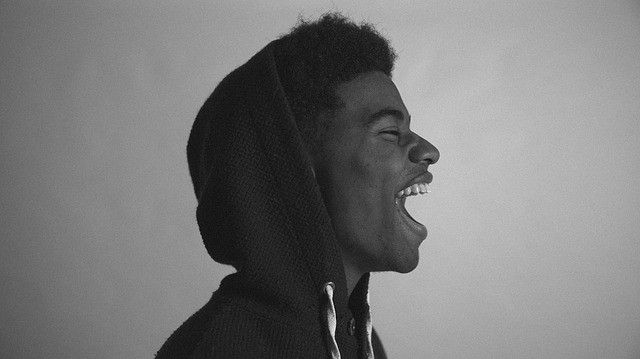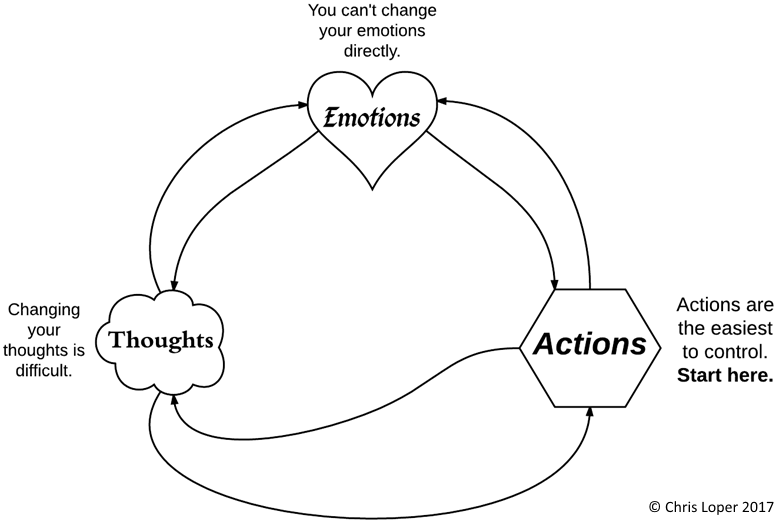
This is a quick follow-up to last week’s article about the feedback loop that controls your life. At the end of that post, I emphasized the importance of choosing your behavior as a way of taking control of the emotion-thought-action feedback loop:

The reason I gave is that directing your behavior is much easier than directing your thoughts, but there is also another reason:
Actions speak louder than thoughts.
You see, there is a process that’s going on all the time in every person called self-perception. Self-perception is the theory that your mind isn’t really sure who you are, how to feel, or what to think, so it looks at your own behavior for clues.
Of course, your mind could also take clues from the way you’re feeling and what you’re thinking, but actions are paramount. Why? Because actions have far greater evolutionary importance than thoughts and feelings. For example, if you feel motivated to gather food, but you don’t actually do it, you’ll go hungry. Or if you think the young lady from the visiting tribe is attractive, but you don’t actually talk to her, you’ve got no chance. Human nature, then, has ensured that behaviors carry the most weight in the emotion-thought-action feedback loop.
Take action in spite of your thoughts.
“Weak is he who permits his thoughts to control his actions; strong is he who forces his actions to control his thoughts.” -Og Mandino1
Don’t believe all the excuses your mind generates. Don’t let your automatic thoughts dictate your behavior. Use your behavior to change your thoughts. Take action in spite of your thoughts.
Feeling Better
“Feelings follow behavior.” -David K. Reynolds2
Humans are generally driven by the desire to feel better. The challenge is to remember that it is our actions that have the greatest influence on how we feel. For instance, one of the most well-researched methods for feeling happier is to be generous. If you engage in an act of kindness, it communicates several things to yourself that cause you to feel better:
- Your generosity is a demonstration of your goodness. You feel happier when you see yourself as a good person.
- Your generosity is possible because you have time, money, or energy to spare. You feel more secure and content when you have an abundance of resources.
- Your generosity takes your attention away from your own problems, which proves that your problems are not as overwhelming or urgent as you originally felt – it’s okay to ignore them for a bit. You feel better when your problems are manageable and non-urgent.
The power of generosity to influence how happy we feel is a stellar example of how positive actions are more effective than positive thinking. Or, in the words of Dan Millman:
“The most constructive way to influence your emotions is to do something.”3
1 Mandino, Og. The Greatest Salesman in the World. Bantam Books, 1968.
2 Reynolds, David K. Constructive Living. University of Hawaii Press, 1984.
3 Millman, Dan. Everyday Enlightenment: The Twelve Gateways to Personal Growth. Grand Central Publishing, 1999.
